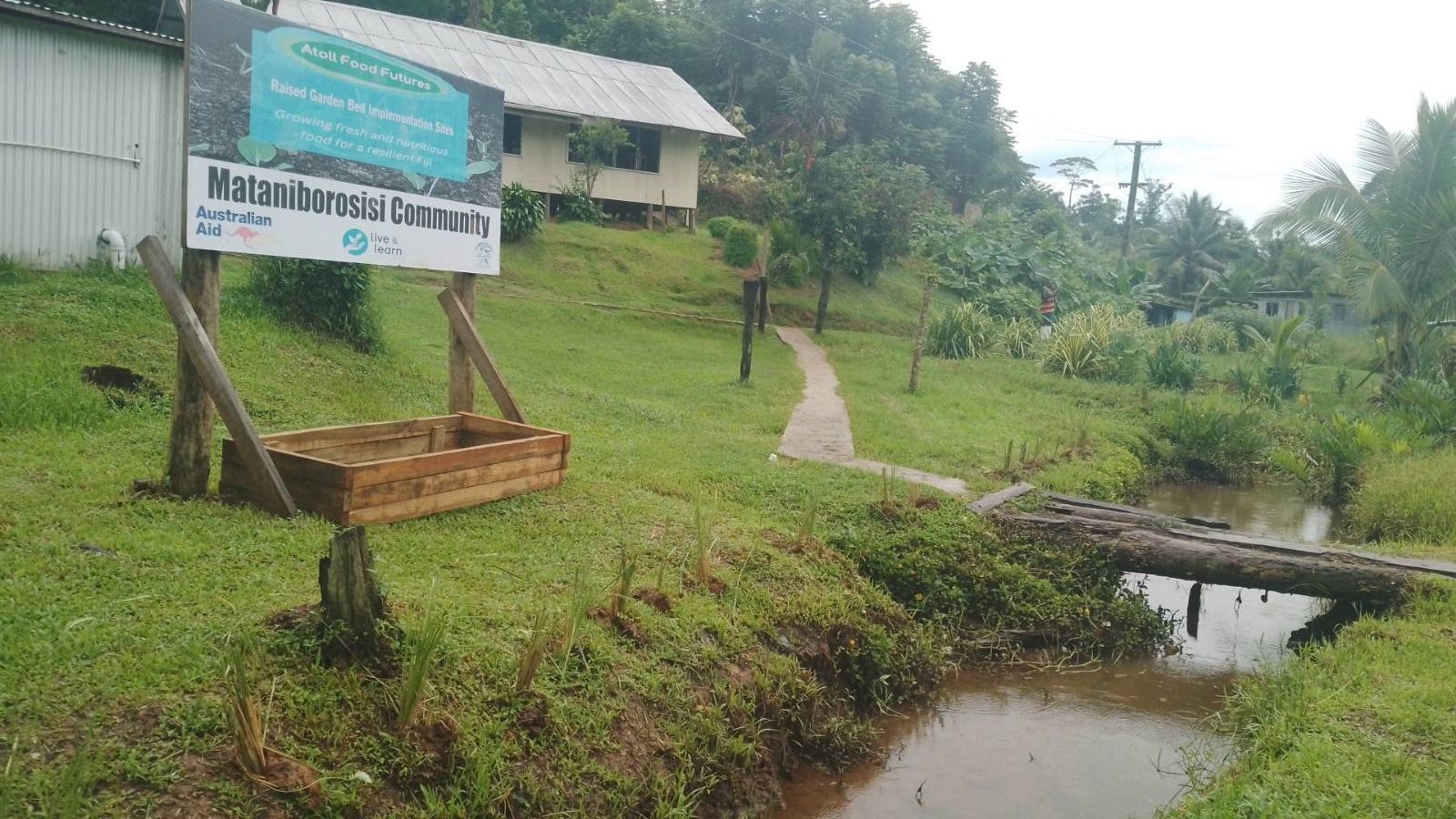PREVENTING AND MITIGATING SOIL EROSION
March 15, 2024

The concept of using Vetiver
grass for soil and water conservation purposes instead of conventional
structures was first developed for the sugar industry in Fiji more than 50
years ago. The Vetiver system is now widely used as a standard practice for
soil and water conservation, particularly on small farms and compounds.
Vetiver grass is widely used in Fiji from simple road embankment and stream bank stabilisation, to contour hedges in farmland. It is a common practice for farmers to plant Vetiver to stabilize farm roads, to spread and slow down runoff water, and most often on contour lines to protect their vegetable crops from rill erosion.
The Ministry of Agriculture and Waterways in collaboration with Live and Learn Fiji has been supporting Atoll Food Futures program, in planting Vetiver grass to sustain the negative effects of climate change to the environment.
The activities is mostly carried out in the informal settlements of Kilikali, Mataniborosisi, Waikerekere and Bilo along the Suva corridor. Most of these communities face a lot of challenges due to the changing weather which has also impacted the soil and streams running along their homes and in their communities.
The Ministry's Land Use Section has been playing an instrumental role in soil erosion control and soil stabilisation, whereby Vetiver grass, is used to form dense narrow edges when planted close to each other.
Secondly, Vetiver grass is used to slow down water flow preventing channel formation and also plays a significant role in soil improvement and restoration which in turn reduces soil erosion.
Climate change, unfortunately is here to stay as it is a natural phenomenon caused by various elements and can only be mitigated by nature-based solutions like planting of Vetiver amongst other solutions.
-ENDS-
